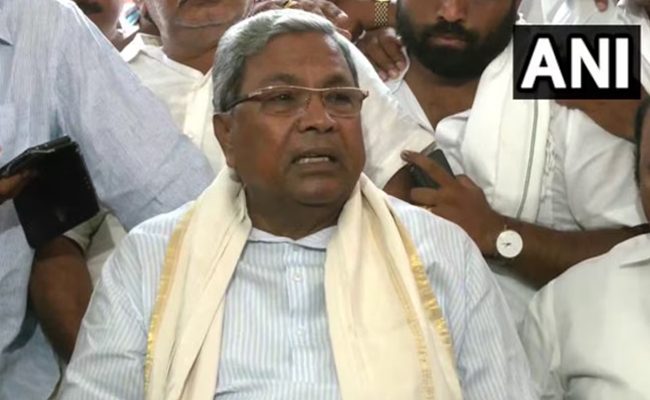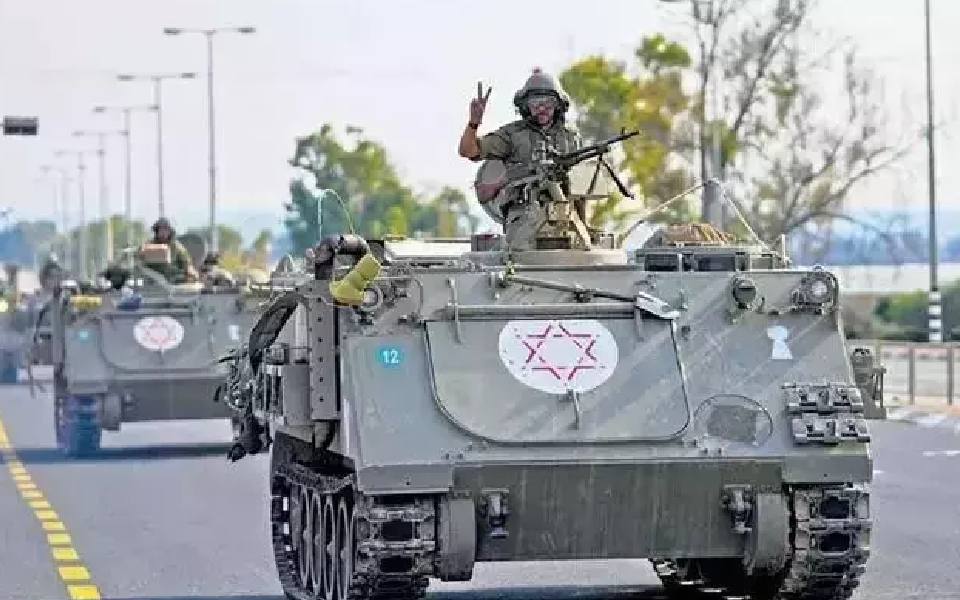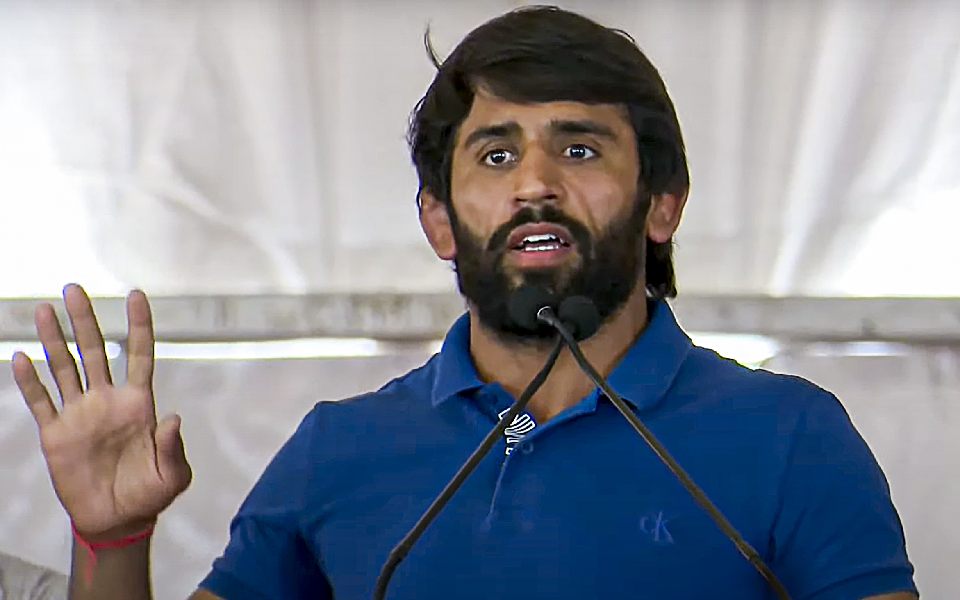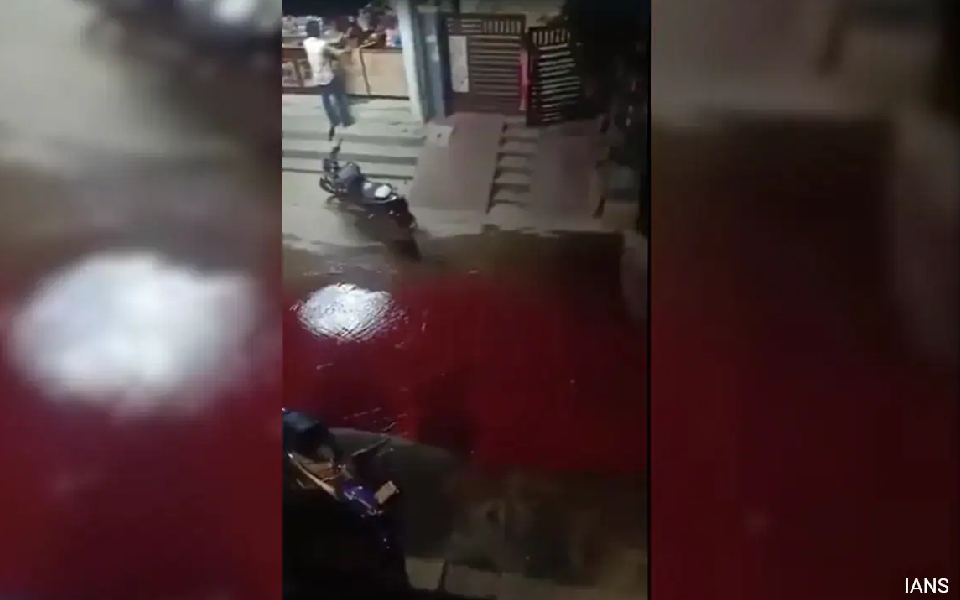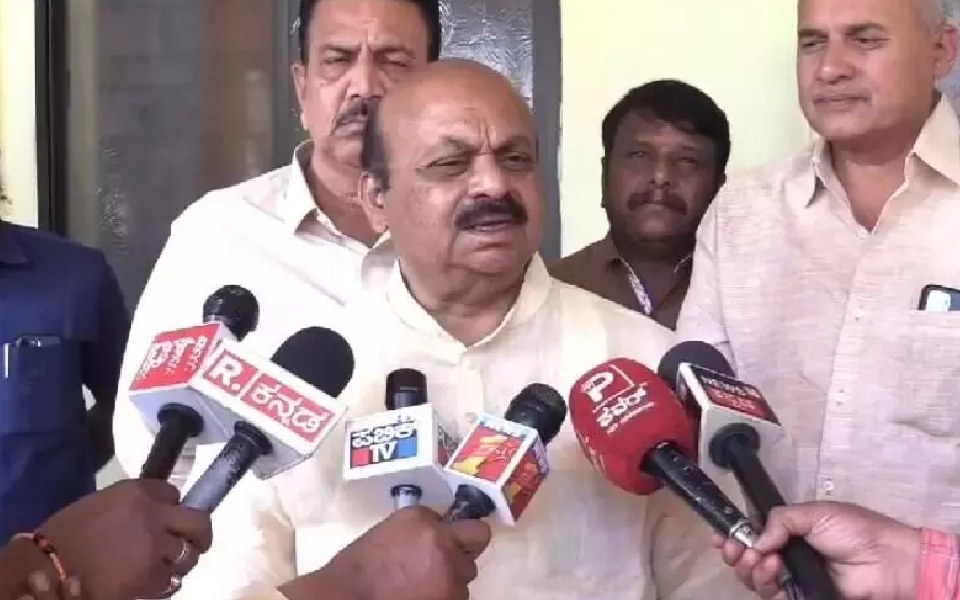Bengaluru (PTI): The Karnataka government on Thursday "strongly advised" Governor Thaawarchand Gehlot to withdraw the show cause notice he issued to Chief Minister Siddaramaiah over the Mysuru Urban Development Authority (MUDA) site allotment 'scam', and alleged that it was part of a concerted effort to destabilise the Congress regime.
The Council of Ministers discussed the show cause notice, and alleged that it was a "gross misuse of the Constitutional Office'' of the governor and said that a concerted effort is being made to destabilise a lawfully elected majority government in Karnataka for political considerations.
Based on a petition filed by advocate-activist T J Abraham, the governor issued the notice on July 26 directing the chief minister to submit his reply to the allegations against him within seven days justifying why permission to prosecute him should not be granted.
ALSO READ: Karnataka Ministers take exception to Governor's "show-cause notice" to CM on MUDA 'scam'
"...Hence, the request of the petitioner needs to be processed as per provisions of section 17(A) and 19 of Prevention of Corruption Act, 1988 and section 218 of Bharatiya Nagarik Suraksha Sanhita, 2023...", the governor had said in his notice to the chief minister.
Speaking to reporters after a meeting of the Council of Ministers which lasted five hours, Deputy Chief Minister D K Shivakumar, flanked by seven cabinet colleagues, said the governor failed to take note of the fact that Abraham has criminal antecedents, including cases of blackmail and extortion registered against him.
The council strongly urged the governor to withdraw the notice and to proceed forthwith to reject the application for sanction filed by Abraham, he said. "I am hopeful that the governor will withdraw the notice and uphold the dignity of his office in spite of any pressure."
Shivakumar said it expressed the view that the governor, in issuing the show cause notice, has acted in undue haste, circumventing all procedural requirements.
He described the governor's decision as a "murder of democracy and the Constitution''.
"There is no case for prosecution here," he asserted. "(This action against) a chief minister who has been elected with a huge majority in a democratic set up is a murder of democracy and detrimental to the Constitution by (sic) the Centre... the central government is using the governor..." he said.
Shivakumar said that Abraham had submitted a letter to the governor on July 26. On the same day, the chief secretary had personally given a detailed reply to the governor on the issue through a report, as sought by him earlier.
"Without looking into the aspects and issues, the genuinity (sic) of the report of the chief secretary, the governor has issued a show cause notice (to CM) on July 26... This is a political, malafide show cause notice. We never expected this from the governor. He could have studied and looked into the report submitted by the chief secretary," he said.
The chief minister skipped today's meeting of the Council of Ministers and authorised Shivakumar to chair it.
Home Minister G Parameshwara said since the Cabinet was slated to discuss the notice issued to the CM the governor, ministers requested the chief minister to skip it.
Earlier today at a breakfast meeting, Siddaramaiah held discussions with his cabinet colleagues regarding a political and legal strategy and the Congress high command’s directions on the issue.
The chief minister's Legal Advisor A S Ponnanna, a MLA, who was also present at the press meet, said as per Article 163 of the Constitution, the governor has to act on the aid and advice of the council of ministers and at his discretion when provided under the Constitution.
He further said: "Prior approval under section 17A of Prevention of Corruption Act can be sought only by the investigation officer after due verification, not by T J Abraham."
In the MUDA 'scam', it is alleged that compensatory sites were allotted to Siddaramaiah's wife Parvathi in an upmarket area in Mysuru, which had higher property value compared to the location of her land which had been "acquired" by MUDA.
MUDA had allotted plots to Parvathi under a 50:50 ratio scheme in lieu of 3.16 acres of her land, where MUDA developed a residential layout.
Under the controversial scheme, MUDA allotted 50 per cent of developed land to the land losers in lieu of undeveloped land acquired from them for forming residential layouts.
BJP leaders have claimed that the MUDA 'scam' is of the magnitude of Rs 4,000 crore to Rs 5,000 crore.
On July 14, the Congress government constituted a single-member inquiry commission under former High Court Judge Justice P N Desai to probe the MUDA 'scam'.
Siddaramaiah, along with Shivakumar, on Tuesday met Congress President M Mallikarjun Kharge, Leader of Opposition in Lok Sabha Rahul Gandhi, party General Secretaries K C Venugopal and Randeep Singh Surjewala in New Delhi and held discussions.
Let the Truth be known. If you read VB and like VB, please be a VB Supporter and Help us deliver the Truth to one and all.
Beirut, Nov 26: Israeli Prime Minister Benjamin Netanyahu said Tuesday that he would recommend his cabinet adopt a United States-brokered ceasefire agreement with Lebanon's Hezbollah, as Israeli warplanes struck across Lebanon, killing at least 23 people.
The Israeli military also issued a flurry of evacuation warnings — a sign it was aiming to inflict punishment on Hezbollah down to the final moments before any ceasefire takes hold. For the first time in the conflict, Israeli ground troops reached parts of Lebanon's Litani River, a focal point of the emerging deal.
In a televised statement, Netanyahu said he would present the ceasefire to Cabinet ministers later on Tuesday, setting the stage for an end to nearly 14 months of fighting.
Netanyahu said the vote was expected later Tuesday. It was not immediately clear when the ceasefire would go into effect, and the exact terms of the deal were not released. The deal does not affect Israel's war against Hamas in Gaza, which shows no signs of ending.
The evacuation warnings covered many areas, including parts of Beirut that previously have not been targeted. The warnings, coupled with fear that Israel was ratcheting up attacks before a ceasefire, sent residents fleeing. Traffic was gridlocked, and some cars had mattresses tied to them. Dozens of people, some wearing their pajamas, gathered in a central square, huddling under blankets or standing around fires as Israeli drones buzzed loudly overhead.
Hezbollah, meanwhile, kept up its rocket fire, triggering air raid sirens across northern Israel.
Lebanese officials have said Hezbollah also supports the deal. If approved by all sides, the deal would be a major step toward ending the Israel-Hezbollah war that has inflamed tensions across the region and raised fears of an even wider conflict between Israel and Hezbollah's patron, Iran.
The deal calls for a two-month initial halt in fighting and would require Hezbollah to end its armed presence in a broad swath of southern Lebanon, while Israeli troops would return to their side of the border. Thousands of Lebanese troops and UN peacekeepers would deploy in the south, and an international panel headed by the United States would monitor all sides' compliance.
But implementation remains a major question mark. Israel has demanded the right to act should Hezbollah violate its obligations. Lebanese officials have rejected writing that into the proposal. Israel's Defense Minister Israel Katz insisted on Tuesday that the military would strike Hezbollah if the U.N. peacekeeping force, known as UNIFIL, doesn't provide “effective enforcement” of the deal.
“If you don't act, we will act, and with great force,” Katz said, speaking with UN special envoy Jeanine Hennis-Plasschaert.
The European Union's top diplomat, Josep Borrell, said Tuesday that Israel's security concerns had been addressed in the deal also brokered by France.
“There is not an excuse for not implementing a ceasefire. Otherwise, Lebanon will fall apart,” Borrell told reporters in Italy on the sidelines of a Group of Seven meeting. He said France would participate on the ceasefire implementation committee at Lebanon's request.
Bombardment of Beirut's southern suburbs continues
Even as Israeli, US, Lebanese and international officials have expressed growing optimism over a ceasefire, Israel has continued its campaign in Lebanon, which it says aims to cripple Hezbollah's military capabilities.
An Israeli strike on Tuesday levelled a residential building in the central Beirut district of Basta — the second time in recent days warplanes have hit the crowded area near the city's downtown. At least seven people were killed and 37 wounded, according to Lebanon's Health Ministry.
Three people were killed in a separate strike in Beirut and three in a strike on a Palestinian refugee camp in southern Lebanon. Lebanese state media said another 10 people were killed in the eastern Baalbek province. Israel says it targets Hezbollah fighters and their infrastructure.
Earlier, Israeli jets struck at least six buildings in Beirut's southern suburbs. One strike slammed near the country's only airport, sending plumes of smoke into the sky. The airport has continued to function despite its location on the Mediterranean coast next to the densely populated suburbs where many of Hezbollah's operations are based.
Israeli military spokesman Avichay Adraee issued evacuation warnings for 20 buildings in the suburbs, as well as a warning for the southern town of Naqoura where UNIFIL is headquartered.
UNIFIL spokesperson Andrea Tenenti told The Associated Press that peacekeepers will not evacuate.
Other strikes hit in the southern city of Tyre, where the Israeli military said it killed a local Hezbollah commander.
The Israeli military also said its ground troops clashed with Hezbollah forces and destroyed rocket launchers in the Slouqi area on the eastern end of the Litani River, a few kilometres from the Israeli border.
Previous ceasefire hopes were dashed
Under the ceasefire deal, Hezbollah would be required to move its forces north of the Litani, which in some places is about 30 kilometers (20 miles) north of the border.
A ceasefire between Israel and Hezbollah, the strongest Iranian-backed force in the region, would likely significantly calm regional tensions that have led to fears of a direct, all-out war between Israel and Iran. It's not clear how the ceasefire will affect the Israel-Hamas war in Gaza. Hezbollah had long insisted that it would not agree to a ceasefire until the war in Gaza ends, but it dropped that condition.
Hezbollah began firing into northern Israel, saying it was showing support for the Palestinians, a day after Hamas carried out its Oct. 7, 2023, attack on southern Israel, triggering the Gaza war. Israel returned fire on Hezbollah, and the two sides have been exchanging barrages ever since.
Israel escalated its campaign of bombardment in mid-September and later sent troops into Lebanon, vowing to put an end to Hezbollah fire so tens of thousands of evacuated Israelis could return to their homes.
More than 3,760 people have been killed by Israeli fire in Lebanon the past 13 months, many of them civilians, according to Lebanese health officials. The bombardment has driven 1.2 million people from their homes. Israel says it has killed more than 2,000 Hezbollah members.
Hezbollah fire has forced some 50,000 Israelis to evacuate in the country's north, and its rockets have reached as far south in Israel as Tel Aviv. At least 75 people have been killed, more than half of them civilians. More than 50 Israeli soldiers have died in the ground offensive in Lebanon.
After previous hopes for a ceasefire were dashed, U.S. officials cautioned that negotiations were not yet complete and noted there could be last-minute hitches that delay or destroy an agreement.
“Nothing is done until everything is done,” White House national security spokesman John Kirby said.
While the ceasefire proposal is expected to be approved if Netanyahu brings it to a vote in his security Cabinet, one hard-line member, National Security Minister Itamar Ben-Gvir, said he would oppose it. He said on X that a deal with Lebanon would be a “big mistake” and a “missed historic opportunity to eradicate Hezbollah.”

